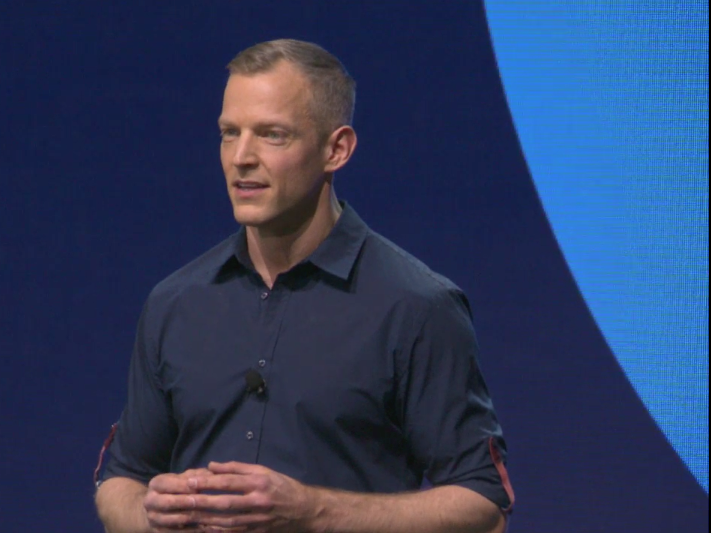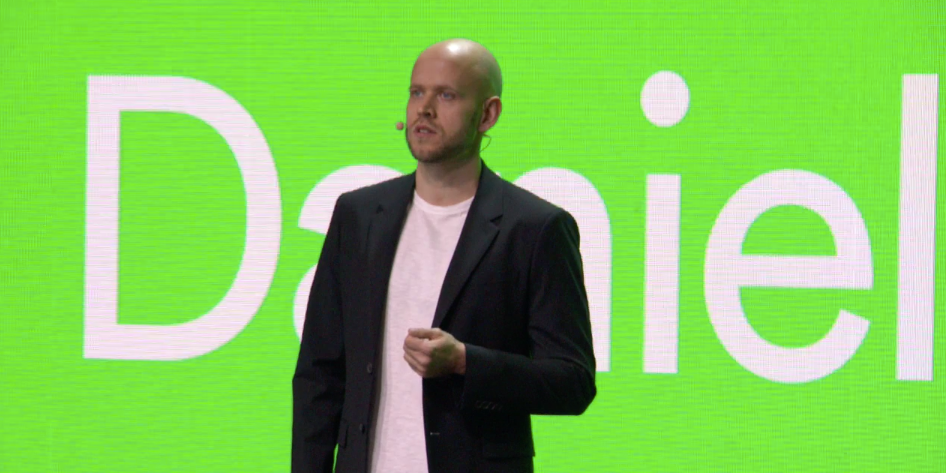- Spotify, which skipped the traditional IPO process for a unique format known as a direct listing, took its shares public on Tuesday.
- On March 15, ahead of the IPO, the company made its pitch to investors.
- In his pitch, CEO Daniel Ek highlighted Spotify’s potential as a tool for the music industry and artists – which could signal to investors that the company has room to grow its product offerings and revenue streams.
Music streaming service Spotify went public on Tuesday using an unusual method known as a “direct listing.”
And rather than do the typical pre-IPO investor roadshow, where executives travel around the country making their pitches to would-be investors, Spotify opted instead for a one-day investor presentation, live-streamed on the internet in mid-March.
In that presentation, Ek said that Spotify will also skip what he called the “the pomp or the circumstance of it all,” and won’t do any interviews or hold any parties around the time of its listing. However, the company did want the chance to make a case for the role it can play in the music industry, and how it can compete with rivals like Apple Music.
Here’s Spotify’s pitch to investors:
CEO emphasized Spotify as a tool for the music industry
Ek's big pitch on Thursday centered around the idea that Spotify is both good for consumers and for artists. He called Spotify "a market place of services for the industry."
"If you're an artist in search of an audience, you really want to be on Spotify," Ek told investors.
He described Spotify, which got most of its $5 billion in 2017 revenue from premium subscriptions and advertising revenue, as a "creator experience platform." He highlighted the company's data analytics tools, which that give artists insight into how users are listening to their music, and which songs they skip.
"Why does this matter? We all know information is power, and for many it helps bridge the gap between the struggling and the successful," Ek said.
This is a key pitch for the company, as it gives investors a sense of how Spotify could create revenue streams outside of its consumer audience.
Spotify swiped at Apple and highlighted its 'algatorial' approach
One of Spotify's biggest competitors is Apple, which pre-loads its own Apple Music streaming service onto iPhones and iPads. Another competitor is Amazon Prime Music, which integrates with the popular Amazon Echo speaker. In its filing to go public, Spotify listed Apple and Amazon's hardware as a key threat to its business.

Both Ek and his chief research and development officer Gustav Söderström emphasized that Spotify is a software company, and that this gives it a level of focus that its competitors in hardware don't have.
Spotify isn't focused on "selling hardware" or "selling books," Ek said.
"Nobody else has more than 3,000 employees focused on just this one thing," Ek said.
Söderström highlighted a few different ways that Spotify is developing software to create a more tailored product.
Among them is its so-called "algatorial approach." That's how Spotify characterizes music curation system for its playlists, which mix algorithms and human editorial curation.
"Machines haven't taken over," Söderström said. "We're leveraging the taste and expertise of the world's best music curators."
Already, 30% of all streams on Spotify are alagatorial, he said, which is how they "know it's working."
Spotify was on the defensive about its free product, which is costly
One of Spotify's biggest hurdles is that it's expensive to be in the music streaming business.
Music licensing and royalty fees have cost the company $10 billion since its inception, and the company remains in the red as the result. Despite posting almost $5 billion in revenue for 2017, the company lost $1.5 billion that same year.
Anticipating investors' concerns, Spotify defended its freemium model, which gives users ad-supported access to free streaming. Since Spotify pays per-stream and per-song, it loses money on these users.
But Söderström told investors that this freemium model helps Spotify reach consumers "who are still on the fence about paying for music," while giving the company access to their music consumption data.
"The more you play, the more you're going to pay," Söderström said. "It allows us to reach much, much deeper into the market."
But, because Ek and Söderström declined to take questions from would-be investors, there wasn't an opportunity to press further on these points and get more details on the freemium strategy.

